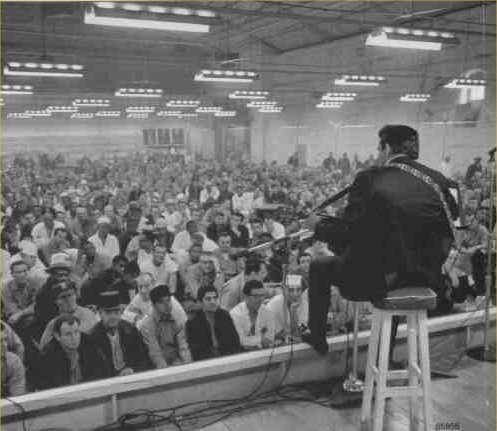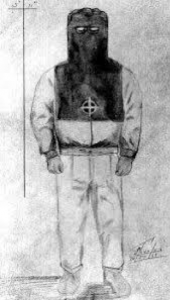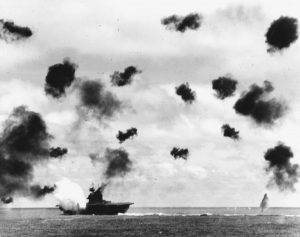“Hello, I’m Johnny Cash.” These famous words once echoed within the walls of a prison that earned its fame through a song. The performance, though, was much more that just a set of lyrics or a nice tune. On January 13, 1968 at the beginning of what would become a tumultuous year, Johnny Cash, June Carter, Carl Perkins and the Tennessee Three performed two shows at Folsom Prison in California. These performances would forever change the landscape of music, reaching Time Magazine’s 100 top albums of all-time in 2006, while also raising awareness for prison reform by putting it into the spotlight.1
Before this performance, Johnny Cash and his health were in a downward spiral. His song “Folsom Prison Blues” was inspired by the film “Inside the Walls of Folsom Prison” in which he saw himself as a prisoner at Folsom. This song caused many of the inmates and people around the United States to believe that he was once incarcerated at Folsom Prison. This was not true, although Mr. Cash had spent a few nights in other jails for drunk and disorderly conduct and possession of drugs. This led many to believe that because of this, Cash’s music and performances resonated with deeply with prisoners.2
The Civil Rights Movement brought attention to prison reform, and Cash’s home state of Arkansas was one of the worst offenders of these kinds of abuses. Their ineffective treatment and rehabilitation of their inmates, along with poor living conditions made him empathize with the men. He decided to use his social and celebrity status he decided to spark a change.His dependence on drugs at the time made Columbia Records unwilling to record a live performance at the prison. But in 1967 both Cash and Columbia Records underwent major changes, and when Bob Johnston was put in charge of Cash’s musical performances, Folsom Prison was a go.3

The performance was set for January 13, 1968, so the band and Cash’s father arrived three days earlier to rehearse the carefully crafted lineup of songs. While at El Rancho Motel in Sacramento, California, the Governor of California Ronald Reagan, who was there for an after-dinner speech, visited the band and offered his words of encouragement.4 The night before the performance, Cash stayed up late rehearsing a song written by inmate Glenn Shirley called “Greystone Chapel,” which was about finding God in the chapel at Folsom Prison. Moved by the lyrics “Inside the walls of prison my body may be/But the Lord has set my soul free.” Mr. Cash vowed to play the song the next day. 5
On the morning of January 13, Mr. Cash met with Los Angeles Times writer Robert Hilburn (who later wrote the biography Johnny Cash: The Life) and photographer Jim Marshall at Folsom Prison where things were tense. A guard had recently been taken hostage, and so the inmates were told not to stand during the show. Armed guards carefully watching the crowd from above, but apart from all the chaos stood a calm man dressed in all black. When he took the stage for his first performance out of two that day, the inmates were told not to cheer until he had introduced himself, and they listened. His first song on the list, Folsom Prison Blues, sent the crowd into an uproar and the entire event was a huge success.6

Four months after the performance, the album At Folsom Prison was released. More importantly was the success that came with it, which allowed Cash to speak more about the reform needed in prisons. “He thought the prison system was broken, it wasn’t fixing anybody,” said Mark Stielper, a friend of Cash’s and the family’s designated historian. “The population was mixed, kids and killers. This was his thing; he was really bothered by that.”7 With no other celebrity making society aware of those issues at the time Mr. Cash brought major spotlight, and as a result he was invited by Senator William E. Brock III (R-Tenn.) in July 1972 to testify before the Senate Judiciary Committee’s subcommittee on national penitentiaries. During the same visit Cash met with President Richard M. Nixon in the Oval Office to further discuss the issue. After these important meetings he continued to perform at other prisons, Mr. Cash also spoke about the issue at concerts and on his TV program, and would also visit inmates at his home in Tennessee to play cards and socialize with them. 8
On top of all the musical success was a nation who did not support the cause of prison form enough, and so no traction was really gained from Cash’s advocacy. The performance though, left a lasting effect on country music and solidified Johnny Cash as someone who stood up for those who are often misunderstood and needed help, mirroring his own personal life in a special way.
“So my intuitive take on the time around Folsom is paradoxical, given what the subject matter was: It was the moment that he came into the light. It’s a paradox, but it’s true. When I think about my dad’s life and I think about that moment, that’s when there’s a kind of force, when he embodied who he really was. And that’s light, no matter how much darkness is in it.”
-Rosanne Cash, daughter of Johnny Cash.9
Video interviews made by Northern Light. | Courtesy of YouTube
- Wikipedia, 2018, s.v. “At Folsom Prison,” https://en.wikipedia.org/wiki/At_Folsom_Prison. ↵
- Allison Stewart, “At Folsom prison, Johnny Cash found his cause,” The Washington Post, May 29, 2018, Accessed September 7, 2018, https://www.washingtonpost.com/national/at-folsom-prison-johnny-cash-found-his-cause/2018/05/28/740124ca-4f03-11e8-84a0-458a1aa9ac0a_story.html?noredirect=on&utm_term=.1974f5815d36. ↵
- Colin Woodward, “The Arkansas prison scandal,” March 22, 2018, https://www.arktimes.com/arkansas/the-arkansas-prison-scandal/Content?oid=15957051. ↵
- The Encyclopedia of World Biography, 2nd ed., vol. 3, 2004, s.v. “Johnny Cash,” 353-355. ↵
- Allison Stewart, “At Folsom prison, Johnny Cash found his cause,” The Washington Post, May 29, 2018, Accessed September 7, 2018. ↵
- Robert Hilburn, Johnny Cash: The Life (New York: Little, Brown, and Company, 2013) 325-327. ↵
- Danny Robins, “Johnny Cash and his prison reform campaign,” BBC World Service, Arkansas, January 23, 2013, https://www.bbc.com/news/magazine-21084323. ↵
- Allison Stewart, “At Folsom prison, Johnny Cash found his cause,” The Washington Post, May 29, 2018, Accessed September 7, 2018. ↵
- Michael Streissguth, Johnny Cash’s ‘At Folsom Prison’: Rosanne Cash Recalls Iconic Live Album, January 12, 2018, https://www.rollingstone.com/music/music-country/johnny-cashs-at-folsom-prison-rosanne-cash-recalls-iconic-live-album-204100/. ↵



67 comments
Maggie Amador
I think it is really amazing that Johnny Cash felt the need to call for reforms in prisons. A lot of the time as a society we do not feel the need to help those who are in prison because we no longer consider prisoners worthy of rights which should not always be the case. I think Johnny Cash being an advocate for those who were neglected is really inspiring. That is not to say prisoners should be treated with luxury, but the Cash makes seems valid.
Jose Fernandez
Johnny Cash had an amazing musical career. And I really enjoyed reading about how he managed to have an impact outside the musical world. I really liked the article and I think this is a great topic! I can tell the author did a lot of research before writing the article. I particularly enjoyed the images, I think they help the reader get the feel of the story.
Bictor Martinez
The name Johnny Cash always had sounded so familiar, however I could not put it into words. Johnny Cash was able to connect prison with his music into creating something extremely big that would change the landscape of music forever. He was able to put his opinions into his music without hesitation. Who knew that his performance at a prison would help change the way music could be sang. It is also makes me happy to know that the prisoners were extremely cheery about Cash’s music that they sang it at prison.
Engelbert Madrid
Although I’m not really a fan of Johnny Cash’s music, I do acknowledge his musical career. He is one of the musical artists that had passion on what he did despite the negative comments that the media had over him. Johnny Cash’s live performance at Folsom Prison is one of the greatest moments in music history, because he demonstrated that music should be for everyone, despite who you are.
Nathan Alba
My grandfather was a big fan of Johnny Cash, and we actually have the Folsom Prison Blues record on vinyl. I used to listen to the song every now and then when I was younger. Honestly I didn’t like it all that much. It wasn’t until I read this article that I found out Johnny Cash had actually done something about shedding light on the need for prison reform. I think it goes to show that there is a lot more to the man other than just music.
Maisie Favila
Johnny Cash is an amazing artist, and this article just gave me many more reasons to believe that. I was really in aw to find out he wrote that song to highlight the mistreatment of these prisoners. I think it’s cool that not only did he have an interest in changing music, but politics too. It was important for the writer to have discussed Johnny’s influence in prison reform rather than just talk about his music career. Overall, this article was well written and very informative.
Cooper Dubrule
Johnny Cash’s performance is a good example of how a star can be involved in something bigger than music. Just as many other artists of the time he sought to bring light to issues through their music, Johnny cash performed on behalf of prisoners to represent them. This is a trend that we have seen reciprocate through generations and is present in today’s society as an important aspect of how political ideas are spread.
Daniel Linstead
I heard of Johnny Cash from the film about him and his life. I never watched it or didn’t really know much about him until I read this article. This article was very informative. I find it interesting to know about the music he wrote was dealing with the issues we are still dealing with now. It is almost like he is still writing about things we face today. I enjoyed reading this article about Johnny Cash.
Didier Cadena
This was a very interesting article. I had heard of the concert before, but I did not know the whole story behind the show. It was sad to read about how not that many people cared about prison reforms like Cash did. The article does a great job of putting the I formation together and still make it interesting to read.
Richard Morales
Johnny Cash is one of my favorite American artists. His message of prison reform is one I deeply admire because it shows his compassion for his fellow men. I agree with his point that in prison there are people of very different criminal pasts all bunched together and how that is problematic. I did not know that Cash had such success in his political efforts by meeting with the president in the oval office. It is touching that Cash continued to socialize with inmates after reaching mainstream success. I